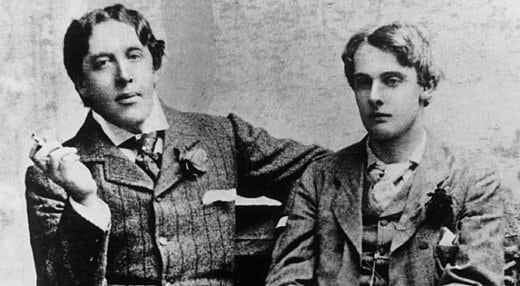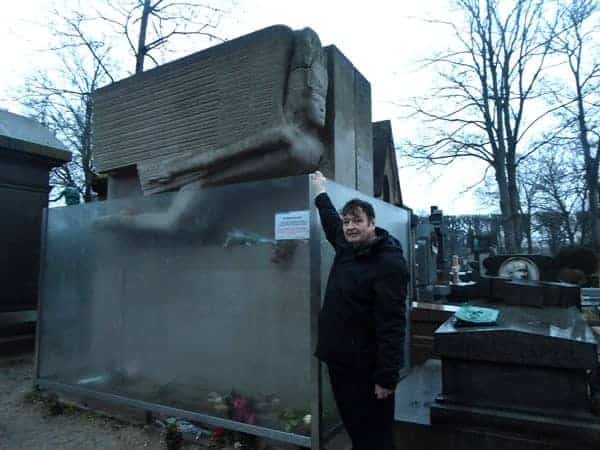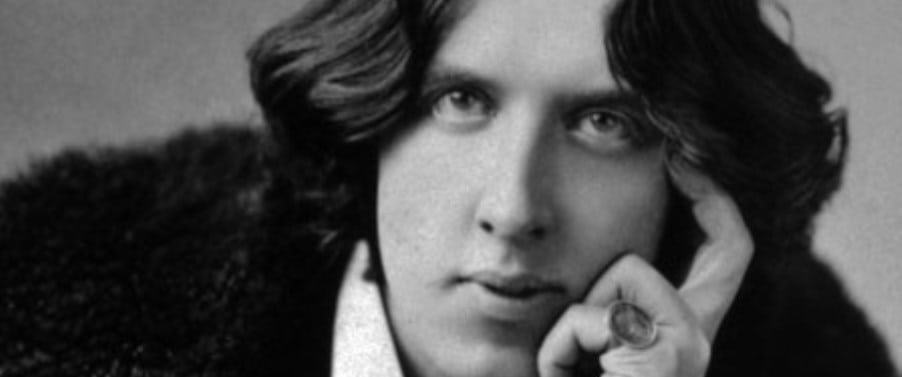One man for whom the same-sex marriage revolution, which at last has been confirmed in Australia, came too late was the legendary Oscar Wilde.
When Oscar Wilde was imprisoned in 1895, his plays were withdrawn from the London stage. Reinstating them was a protracted exercise, and they did not reappear until several years after his death in Paris in 1900, and even then, with his name omitted from the advertising playbills.
The situation in Australia was radically different: there were major seasons by the Brough-Boucicault Comedy Company throughout the 1895 – 1897 period of Wilde’s trials and imprisonment, which were enthusiastically attended by colonial high society including several governors and their wives.
As in London and New York, Wilde’s name was at first removed from advertising hoardings and playbills by the theatre management. Later, again as in London, they used the evasive phrase ‘By the author of …’ Nevertheless, even at the height of the controversy, Sydney and Melbourne newspapers frequently mentioned Wilde by name in their reviews and gossip paragraphs, and Wilde’s name reappeared in their theatrical advertisements in March 1896 a full decade before George Alexander dared to do likewise in London.
There is yet another Australian connection to Oscar Wilde as he was famously portrayed by Australian actor Peter Finch in the 1960 film `The Trials of Oscar Wilde` which many consider the finest film version of the story. Peter Finch, like Oscar Wilde, was a genius who sometimes bordered on insanity – he won a posthumous Oscar as deranged TV Anchor-man Howard Beale in the 1976 film `Network`.
Oscar Wilde lost his action against the Marquis of Queensberry who had accused him of sodomy, then a serious offence, and was sentenced to two years hard labour – a very severe sentence on someone who had been used to a lavish lifestyle.
Wilde was incarcerated between 25 May 1895 and 18 May 1897 in a series of harsh London prisons and finally in Reading Gaol. He spent the remainder of his sentence there, addressed and identified only by “C33” – the occupant of the third cell on the third floor of C ward.

Wilde was released from prison on 18 May 1897 and sailed immediately for France. He would never return to the UK. He spent his last three years in impoverished exile taking the name Sebastian Melmoth. Wilde wrote two long letters to the editor of the Daily Chronicle, describing the brutal conditions of English prisons and advocating penal reform.
Wilde’s final address was at the dingy Hôtel d’Alsace (now known as L’Hôtel – a five-star luxury hotel these days), on Rue des Beaux-Arts in Paris.
“This poverty really breaks one’s heart: it is so sale [filthy], so utterly depressing, so hopeless. Pray do what you can.” he wrote to his publisher.
He wandered the boulevards alone, and spent what little money he had on alcohol. He received a meagre allowance of three pounds a week – equivalent to living on welfare after his days of earning what would today be £12,000 (AUD$21,000) a week as a successful playwright.
Broken in both spirit and body Oscar Wilde died of meningitis on 30 November 1900.
He is buried in the huge Père Lachaise Cemetery in the east of Paris. His tomb was commissioned by Robert Ross, who asked for a small compartment to be made for his own ashes, which were duly transferred in 1950.

The modernist angel depicted as a relief on the tomb was originally complete with male genitalia, which have since been vandalised; their current whereabouts are unknown. In 2000, Leon Johnson, a multimedia artist, installed a silver prosthesis to replace them.
In 2011, the tomb was cleaned of the many lipstick marks left there by admirers and a glass barrier was installed to prevent further marks or damage.
His epitaph taken from the `Ballad of Reading Gaol` reads:
“And alien tears will fill for him
Pity’s long-broken urn,
For his mourners will be outcast men,
And outcasts always mourn.”
There are other memorials to Oscar – as well as Paris there is the Oscar Wilde Memorial Sculpture in Merrion Square, Dublin and a pair of statues of Oscar Wilde and Eduard Vilde, in Galway City in the west of Ireland.
The original sculpture of the two writers was made in 1999 by Tiiu Kirsipuu. The actual conversation which is the subject of the sculpture has never really taken place. The Galway statue is a gift from the Estonian city of Tartu.
On the dreary day of 21 December just been, I walked the avenues of Paris under a grey and unforgiving winter sky. It was the shortest day of the year as it would have been the longest day Down Under. I could just picture Oscar, his health broken, his wealth reduced to a pitiful allowance, most of which went on cheap liquor trudging disconsolately along the bleak boulevards with their trees bereft of leaves under a leaden sky.
Homosexuality or `same-sex sex` as American writer Gore Vidal termed it is of course no longer illegal in the countries we call home.
Wilde was the leading literary figure of the twentieth century. He had few if any equals – one of his aphorisms puts it so succinctly:
“I have nothing to declare except my genius.”
Why should he have been hounded so for his natural inclinations?
It has taken nearly a century since Oscar’s tragic demise for society to liberalise its values on those who pose it no harm.
Homosexuality was decriminalised in Denmark in 1933, Sweden in 1944, England and Wales in 1967, in Scotland in 1981, in Northern Ireland in 1982, in the Republic of Ireland in 1993, in Canada in 1969, in the USA (as a whole) since 2003. Remarkably, homosexuality was only decriminalised in Australia as recently as the 1990s in some states. South Australia led the way in 1972 but Western Australia did not make it legal till 1990, Queensland not until 1991 and Tasmania not until as recently as 1997. Until 1949 the death penalty was still on the books for sodomy in Victoria! Thankfully we live in more enlightened times.
Why should a man be penalised for finding love the only way he can?








 Explore top-rated compensation lawyers in Brisbane! Offering expert legal help for your claim. Your victory is our priority!
Explore top-rated compensation lawyers in Brisbane! Offering expert legal help for your claim. Your victory is our priority! 

 "
"


